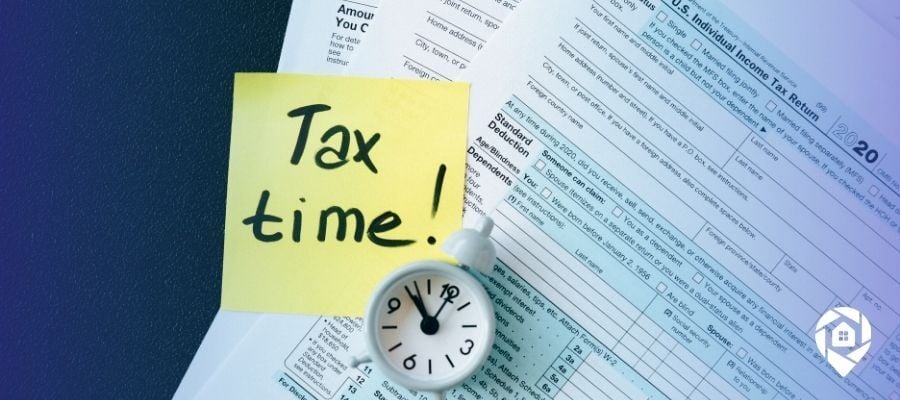
Top Tax Strategies Every Real Estate Investor Should Use

Paying taxes is part of doing business—but that doesn’t mean you have to pay more than you should. If you invest in real estate or run a real estate business, there are smart and legal ways to lower your tax bill. The key is knowing which strategies to use and applying them correctly.
In this guide, real estate tax strategist Anna Klein breaks down eight powerful strategies to help you keep more of what you earn. These aren’t shady loopholes—they’re real, legal tax-saving tools that many experienced investors rely on.
Disclaimer: This blog is for informational purposes only. We are not financial, legal, or tax professionals. Always consult with a qualified advisor or CPA to ensure these strategies fit your specific situation and comply with current laws.
Tax Preparer vs. Tax Strategist: Why It Matters
Most people use a tax preparer to file their taxes. A preparer reports what happened last year and makes sure everything follows the rules. But a tax strategist takes it further—helping you plan ahead, reduce your taxes legally, and take full advantage of real estate tax benefits.
"The Internal Revenue Code is not about how to pay taxes; it's about how to avoid paying taxes," says Klein.
Watch this quick video where tax strategist Anna Klein explains how real estate investors can legally reduce their tax bill—starting with the strategies in this blog.
Cost Segregation: A Real Estate Tax-Saving Strategy
If you own rental property, the cost segregation strategy can help you save thousands in taxes. Instead of depreciating the whole building over decades, this method lets you break it into parts—like flooring, appliances, and lighting—that depreciate faster.
How It Works
- Standard Depreciation: Buildings usually depreciate over 27.5 or 39 years.
- Cost Segregation: Breaks down the property into components with shorter lifespans for quicker write-offs.
Even single-family rental owners can benefit. Talk to a cost segregation expert to see if the savings are worth it for your property.
Augusta Rule Tax Benefit: How to Get Tax-Free Rental Income
The Augusta Rule tax benefit lets homeowners rent out their home for up to 14 days a year without paying taxes on that income. It was originally designed for homeowners in Augusta, Georgia, but now anyone can use it.
If you own a business, you can even rent your home to your company for meetings. You get a tax deduction, and the income isn’t taxable—just make sure to document everything properly.
Self-Directed IRA Real Estate Investing
With a self-directed IRA for real estate, you can invest in properties or offer private loans, and grow your retirement savings either tax-free or tax-deferred.
But the rules are strict. One mistake could trigger penalties. Work with a custodian who specializes in real estate IRAs to stay compliant and protect your funds.
Real Estate Professional Tax Deductions
If real estate is your main job, you might qualify for real estate professional tax status. This allows you to claim rental property tax deductions against other income—something passive investors typically can’t do.
To qualify, you need to:
- Spend at least 750 hours per year in real estate activities
- Show that real estate is your primary occupation
This status can make a big difference in your tax bill if you're active in the industry.
Deduct Mortgage Interest
When you own rental properties, the interest you pay on your mortgage is usually tax-deductible. This can add up, especially early in the loan term when most of your payments go toward interest.
Be sure to keep detailed records and consult your tax professional during filing season.
Use Cash-Out Refinancing to Access Tax-Free Funds
A cash-out refinance lets you tap into your property’s equity without paying taxes on the cash you take out. That money isn’t income—so it’s not taxable.
Use it to reinvest, renovate a rental, or consolidate debt, all without increasing your tax burden. Just be sure to run the numbers and consult your advisor before moving forward.
Flipping? Know the Tax Rules
Flipping houses can be profitable, but it also comes with different tax rules. If you sell a property in under a year, your profits are taxed as regular income. Hold it longer, and it may qualify for the long-term capital gains tax rate, which is usually lower.
Flip often? You could be classified as a dealer, which limits deductions and increases tax exposure. A tax strategist can help you stay on the right side of IRS rules.
Real Estate Tax Planning: Why You Need a Strategist
All of these strategies work better when you plan ahead. That’s where a real estate tax strategist comes in. They can help you look at the big picture, stay compliant, and save more of your money legally.
"If you can't beat them, join them. Copy and paste whatever they're doing," Klein adds.
Final Thoughts
Real estate offers powerful tax benefits—but only if you use them. From the cost segregation strategy to the Augusta Rule tax benefit, these tools are legal, proven, and used by smart investors every day.
Start with what fits your current situation, then grow from there. And remember, tax planning isn't just for the wealthy—it's for anyone who wants to build long-term wealth through real estate.
Again, always speak with your own financial or legal professional before applying any of these strategies. Laws change, and personal situations vary.

About Maria Tresvalles
Maria Tresvalles is the dynamic Marketing Specialist at DealMachine, where she has been a key player for the past five years. With a strong background in customer relations, Maria started her journey at DealMachine as a Customer Success Coordinator, where she honed her skills in understanding customer needs and driving satisfaction.


